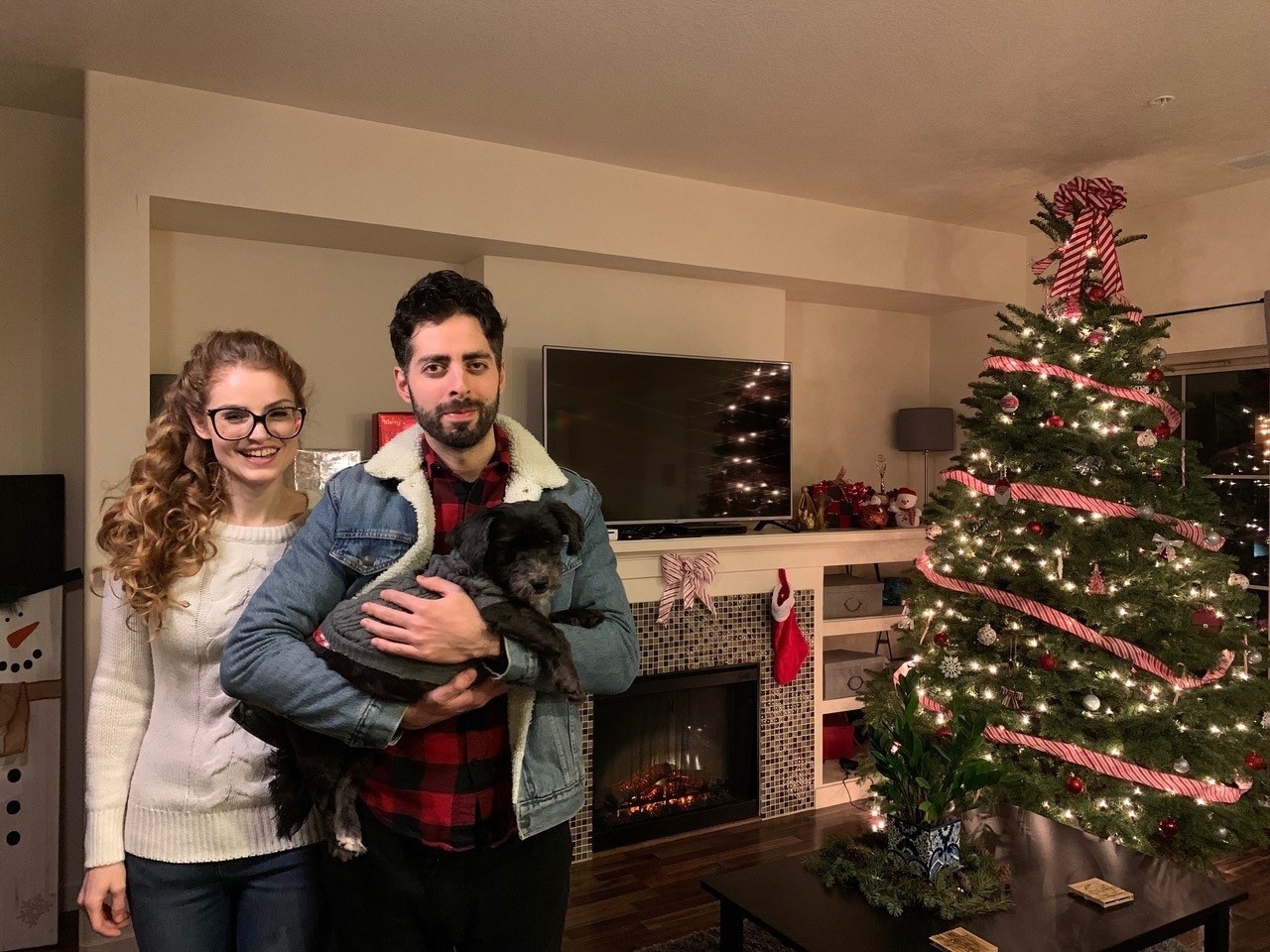Applying for a K-3 spouse visa is a required step for many couples where one spouse is a U.S. one is a foreign national and the other is a citizen. This visa aims to reduce the time families are separated during the immigration process. This comprehensive guide will walk you through the steps, k3 visa requirements, and key considerations for applying for a K-3 visa.
What is a K-3 Visa?

The K-3 visa is a nonimmigrant visa designed to speed up the immigration process for spouses of U.S. citizens. It allows the foreign spouse to enter the United States while waiting for the approval of their immigrant visa petition (Form I-130). This k3 spouse visa was introduced to address the lengthy wait times associated with immigrant visa processing, providing a short-term solution for families to be together in the U.S. while the immigration process is finalized.
K-3 Visa Requirements
To apply for a K-3 visa, you need to fulfill the following conditions:
- Marriage: The applicant must be legally married to a U.S. citizen.
- Petition: The U.S. citizen spouse must have filed a Form I-130 (Petition for Alien Relative) on behalf of the foreign spouse.
- Eligibility: The foreign spouse must meet all k3 marriage visa eligibility criteria, including health and security checks.
K-3 Visa Application Process

Step 1: File Form I-130
The U.S. spouse who is a citizen must submit Form I-130 to the U.S. Citizenship and Immigration Services (USCIS). This form is the Petition for Alien Relative, which establishes the relationship between the U.S. citizen and the foreign spouse. This initial step is important as it officially starts the k3 visa application immigration process.
Step 2: File Form I-129F
Once the USCIS has received Form I-130, the U.S. citizen spouse should file Form I-129F (Petition for Alien Fiancé(e)). This form is specifically for the K-3 visa and helps speed up the process. The I-129F form is also used for K-1 visas (fiancé visas), but in this context, it supports the K-3 visa application.
Step 3: Approval of Forms
After both forms are approved, the USCIS will forward the applications to the National Visa Center (NVC). The NVC will then send the documents to the U.S. Embassy or Consulate in the foreign spouse’s country of residence. This stage involves the transition from USCIS processing to consular processing, which is an essential part of the K-3 visa journey.
Step 4: Visa Interview
The foreign spouse will be required to attend a visa interview at the U.S. Embassy or Consulate. During the interview, the consular officer will review the application and supporting documents and ask questions to confirm the legality of the marriage. This step is required as it ensures that the marriage is genuine and not only for immigration benefits.
K-3 Visa Processing Time
The K-3 visa processing time can vary, but generally, it takes between 5 to 10 months. Several factors influence the processing time for a K-3 visa, including:
- Backlogs at the USCIS and NVC
- Completeness and accuracy of the application
- Country-specific conditions
The processing time for K-3 visa applications can be unpredictable due to these variables. Therefore, it’s advisable to start the process as early as possible and ensure all documentation is complete and accurate to avoid unnecessary delays.
Cost of K-3 Visa

The K-3 visa cost involves several fees:
- Form I-130 filing fee: $535
- Form I-129F filing fee: $535
- Medical examination fees: Varies by country
- Visa application fee: $265
Additional k-3 visa costs may include travel expenses, translation services, and document procurement. It’s important to budget for these expenses to avoid any financial surprises during the application process.
K-3 Visa Attorney
Hiring a K-3 visa attorney can be beneficial in dealing with the complex application process, ensuring accuracy in the paperwork, and addressing any legal concerns. An experienced attorney can provide valuable guidance, helping to avoid common pitfalls and simplify the process. Legal expertise is especially helpful if there are any complications or unique circumstances surrounding your case.
Differences Between K-3 Visa and Other Visas
K-3 Visa vs. CR1 Visa
- Purpose: The K-3 visa is a nonimmigrant visa that allows the spouse to enter the U.S. while waiting for the immigrant visa, whereas the CR1 visa is an immigrant visa that grants permanent residence upon entry.
- Processing Time: The K-3 visa processing time is generally faster than the CR1 visa, but this can vary depending on individual cases and processing queues.
The K-3 visa provides a temporary solution to be together in the U.S., while the CR1 visa directly grants permanent residency. The choice between these two options often depends on individual circumstances and priorities.
K-3 Visa vs. K-1 Visa
- Relationship Status: The K-1 visa is for fiancés of U.S. citizens, while the K-3 visa is for spouses.
- Entry Purpose: The K-1 visa allows entry for marriage within 90 days, whereas the K-3 visa allows entry for waiting on immigrant visa approval.
The K-3 visa is specifically personalized for married couples, while the K-1 visa is for couples planning to marry. Understanding these distinctions is necessary for choosing the right visa type.
Key Considerations for K-3 Visa Applicants

Documentation
Accurate and complete documentation is critical for the K-3 visa application process. Required documents normally include:
- Marriage certificate
- Proof of U.S. citizenship of the sponsoring spouse
- Form I-130 and Form I-129F
- Proof of relationship (photos, correspondence, etc.)
- Police certificates from countries where the applicant has lived
Gathering these documents in advance and ensuring they are correctly translated (if necessary) can greatly simplify the processing time k3 visa.
Health and Security Checks
Applicants must undergo health and security checks. These checks are mandatory to ensure that the applicant does not pose a public health risk or security threat to the United States. The doctor performing the examination needs to be certified by the U.S. Embassy or Consulate.
Financial Support
The U.S. citizen spouse must show the ability to financially support the foreign spouse. This is normally done through an Affidavit of Support (Form I-864). Providing sufficient proof of income or assets is essential to meet the financial requirements for the K-3 visa.
K-3 Visa Processing Time: Detailed Insights
Understanding the K-3 visa processing time is important for applicants to manage expectations and plan accordingly. Several stages contribute to the overall processing time:
- USCIS Processing: The initial processing of Form I-130 and Form I-129F by USCIS can take several months. Delays often occur due to high volumes of applications or incomplete submissions.
- NVC Processing: Once USCIS approves the forms, the National Visa Center takes over. The NVC’s role includes forwarding documents to the relevant U.S. Embassy or Consulate.
- Consular Processing: The time it takes for the U.S. Embassy or Consulate to schedule and conduct the visa interview can vary widely by location and current workload.
Each of these stages can experience delays, making the processing time for a K-3 visa unpredictable. Applicants should regularly check the status of their applications and immediately respond to any requests for additional information.
Preparing for the Visa Interview

The visa interview is a critical step in the K-3 visa process. Preparing thoroughly can increase the likelihood of a successful outcome. Key preparation steps include:
- Organize Documents: Ensure all required documents are organized and easily accessible.
- Practice Interview Questions: Be prepared to answer questions about your relationship, marriage, and plans in the United States.
- Dress Appropriately: Present yourself professionally at the interview.
The interview aims to verify the legality of the marriage and ensure all eligibility criteria are met. Confidence and preparedness can make a big difference.
Legal Considerations and Common Challenges
Handling the legal case of the K-3 visa can be challenging. Common issues include:
- Incomplete or Incorrect Applications: Mistakes on forms or missing documents can cause delays or denials.
- Miscommunication: Misunderstandings between applicants and immigration authorities can complicate the process.
- Eligibility Issues: Failing to meet eligibility criteria, such as financial support or health requirements, can result in denial.
Consulting with a K-3 visa attorney can help address these challenges. An experienced attorney can provide personalized advice and support to handle potential issues effectively.
Post-Arrival Considerations
Once the K-3 visa is granted and the foreign spouse arrives in the United States, there are several important steps to follow:
- Adjustment of Status: The K-3 visa holder must apply for adjustment of status to become a permanent resident. Form I-485, (Application to Register Permanent Residence or Adjust Status), must be filed for this.
- Employment Authorization: K-3 visa holders can apply for employment authorization to work legally in the United States while waiting for their green card.
- Social Security Number: Applying for a Social Security Number (SSN) is essential for various purposes, including employment and financial transactions.
Understanding these post-arrival steps ensures a smooth transition and integration into life in the United States.
Conclusion
Applying for a K-3 spouse visa is a complex but manageable process with the right information and preparation. This guide provides an in-depth look at the steps, requirements, and considerations for a successful application. By understanding the details of the K-3 visa process, couples can deal with the journey more effectively and reunite in the United States while waiting for permanent residency.
For more information or assistance with your K-3 visa application, consult our experts at Passage Law today. We are here to help you through every step of the journey to ensure a smooth and effective process for reuniting with your loved one in the United States.







